HEALTHY BEGINNINGS
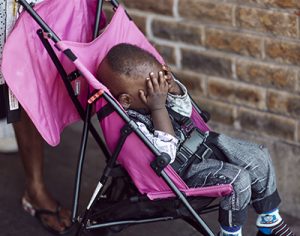
Focuses on three key areas; child development, social and emotional wellbeing and early educational outcomes. This area of research has a strong focus on early interventions, as well as the monitoring and assessment of the health of young children during their first years of life. This is a key priority area for NSW Health, and the Federal government’s ‘National Action Plan for the Health of Children and Young People 2020-2030’.
Every 9 minutes a child is born who is at risk of developing a Development and Mental health Disorder. One in every five Australian children starts school “developmentally vulnerable”, resulting in a deficit in one or more areas of child development (e.g. motor, language, socio-emotional, cognitive and behavioural. Clear inequities exist in the prevalence of developmental vulnerability in Australia with up to half of children from disadvantaged communities, such as South Western Sydney. Early childhood is a critical time of brain development and a period that sets the foundations for behaviours that track into adulthood. Early identification and early intervention, more monitoring and better responsiveness across the first 1000 days will provide the best outcomes for a child to have the best start in life, and a focus on the early years can provide a 13% return on investment.
The team currently works within the area of maternal child attachment and early child development. The BestSTART-SW brings together expertise from Infant Child and Adolescent Mental Health Service (ICAMHS, SWSLHD), Child and Family Health, Oral Health services, Karitane, Allied Health and the SWSLHD Department of Community Paediatrics to consider child health outcomes including: child development, social and emotional wellbeing and early educational outcomes in keeping with the SWSLHD, state and national policy priorities.
MEET THE TEAM
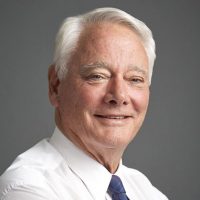
John Whitehall is Professor of Paediatrics at Western Sydney University. His 50 year career began at Sydney University, continued through developing countries and western Sydney as a general paediatrician, then focussed on neonatology before coming to WSU. For 15 years he was Director of Neonatal Intensive Care in Townsville, North Queensland, which included ante-natal diagnosis, resuscitation, management and transportation of premature, dysmorphic and sick neonates, many of whom were Indigenous. In Townsville, he was deeply involved in the establishment of the medical school at James Cook University and, for 20 years, taught modules of Tropical Paediatrics in the Masters programme in the School of Public Health. In recent years, he has also worked as a consultant physician in PNG, Sri Lanka and Madagascar. Currently, he teaches, leads research and has duties in general paediatrics.
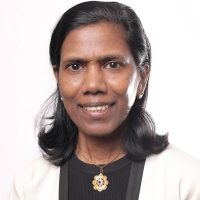
Valsamma Eapen
Director, BestSTART-SWS Professor & Chair of Infant, Child and Adolescent Psychiatry, UNSW
In the area of Child and Adolescent Psychiatry, special areas of focus include epidemiology, genetic underpinnings, neurocognitive processes and clinical presentation of neurodevelopmental disorders such as Tourette Syndrome, Autism, Obsessive Compulsive Disorder, and Attention Deficit Hyperactivity Disorder. Other areas of interest include anxiety in young children and metabolic syndrome in adolescents with mental illness.
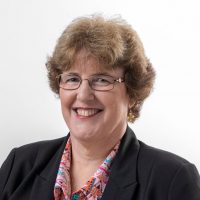
Professor Lynn Kemp is the Director of the Translational Research and Social Innovation team in the School of Nursing and Midwifery at Western Sydney University. Originally trained as a nurse, Professor Kemp has undertaken a significant program of community-based children and young people’s research that includes world and Australian-first intervention studies such as the Maternal Early Childhood Sustained Home-visiting (MECSH) study, the Bulundidi Gudaga trial of sustained nurse home visiting in an urban Aboriginal community, the right@home randomised trial of sustained nurse home visiting, and the Volunteer Family Connect trial of volunteer home visiting. Professor Kemp is now leading an international program of translational research, studying the implementation of these effective interventions at population scale world-wide with programs in Australia, England, South Korea and the USA.
CHILD AND POPULATION HEALTH
 Focuses on three key areas, child obesity child health equity, and mental health and stress. Obesity was chosen as a priority area as 1 in every 3 children in SWS is overweight or obese.
Focuses on three key areas, child obesity child health equity, and mental health and stress. Obesity was chosen as a priority area as 1 in every 3 children in SWS is overweight or obese.
Our research will focus on two population health areas: child obesity and child health equity (vulnerable children and families).
(i) Child Obesity
In total, 56% of adults and 28% of children aged 5-15 years are overweight or obese in SWS (almost 6% above the state average of 22.4%). As such, SWS is the ideal location to make a change in obesity service delivery. Preschool obesity is thought to cost Australia $17million per annum. Tertiary level interventions and single modality community interventions are ineffective in reducing BMI. We will consider population-based complex interventions, integrating primary, secondary and tertiary prevention strategies across the District. We will set up an exemplar of integrated care for obesity management in children and young people in line with the ‘SWS “Growing Healthy Kids” plan’ developed by SWSLHD, and in keeping with the NSW Health and Premier’s priority to reduce childhood overweight and obesity rates by 5% over 10 years (by 2025). Service delivery will be linked with population-based evaluation.
(ii) Child Health Equity
SWS includes 6 of the top 10 most disadvantaged local areas in Sydney and has one of the most ethnically diverse communities in Australia. It has a large population of urban Aboriginal children; a high percentage of culturally and linguistically diverse (CALD) families (51% of families speak “only” English at home compared to 73% for NSW); and families from a refugee background (41% of all humanitarian settlers to NSW are in SWS). From recent evaluation of children attending Community Paediatric clinics in SWSLHD, we know that over a quarter of the clinic population had significant exposure to adverse childhood experiences such as abuse, neglect and trauma.
We will build on our clinical links and previous interdisciplinary research to work with vulnerable and at risk children such as those in OOHC and children from Aboriginal, refugee and CALD communities. These children and families have specific vulnerabilities but also resilience in the face of social and economic disadvantage. We will address inequities in child health and health care through rigorous implementation science with a focus on early childhood cognitive, socioemotional and physical development, health systems outcomes and obesity in these vulnerable children.
MEET THE TEAM
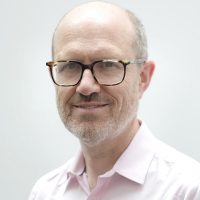
Dr Stephen Conaty is a public health physician with specialist qualifications from Australia and the UK. He has diverse interests at the intersection of policy, operation and research in communicable diseases, immunisation, environmental health, and the built environment. He has BA, MBBS and MPH degrees from the University of Sydney, is a fellow of the Australasian Faculty of Public Health Medicine and is a Member of the Faculty of Public Health (UK). In March 2017 he was appointed as Director of Population Health in South Western Sydney. He is almost vegan, rides a bicycle and mostly optimistic about humans surviving until the end of the century.
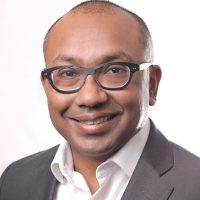
Prof. Raghu Lingam
Co-Director BestSTART-SWS Professor of Population Child Health, UNSW
Professor Raghu Lingam is Professor in Paediatric Population Health at the University of New South Wales and a Consultant Community Paediatrician within the Sydney Children’s Hospital Network. He is an executive member of the Early Life Determinants of Health (ELDoH) and Kids to Adults, clinical academic groups as part of Sydney Partnership for Health, Education, Research and Enterprise (SPHERE). He has over 20 years of clinical experience in paediatrics. Professor Lingam is a senior clinical academic with clinical and research interest in community paediatrics including health services research, child development and disability. In the last 5 years Professor Lingam has run large scale cluster randomised controlled trials in India, Pakistan, Uganda, Mozambique and the UK. He has attracted over £9.5 million of UK research funding from the UK NIHR, World Bank, national charity and Government funding. In addition, he is a Co-applicant in a recently awarded joint NIHR.
HEALTH SYSTEMS RESEARCH
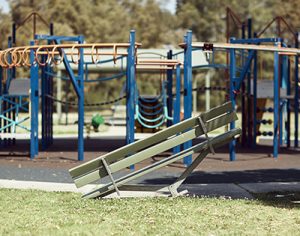 A focal point of this research is to evaluate new integrated models of care, making sure that families can access the right level of care (e.g. GPs, specialists) when they need it. Learning how to best use what we already have, and restructure services so they work for families, is a priority area for the district.
A focal point of this research is to evaluate new integrated models of care, making sure that families can access the right level of care (e.g. GPs, specialists) when they need it. Learning how to best use what we already have, and restructure services so they work for families, is a priority area for the district.
Our work will focus on health systems delivery for children with complex health needs and those with chronic health conditions. This is a heterogeneous and increasingly prevalent group of children with multisystem disease ranging from preterm survivors with cerebral palsy, children with genetic syndromes, to adolescent cancer survivors. Such children with severe complex conditions have significant functional limitations and a high level of family identified health care needs and utilisation. These individuals require highly specialised care, provided by multidisciplinary teams over their childhood and adolescence. Similarly, children with chronic conditions such as obesity, asthma and developmental disorders are common, and need an integrated system of service delivery between primary care and community and hospital settings as well as transition of care from child and adolescent services to adult services. Many of these services are lacking.
We will assess the impact of integrated models of care using improvement science methodology for both these groups, developed with young people, families and frontline clinicians on child health (including disease severity and quality of life), health systems (health service use) and health care quality (patient reported and system measures). We will use co-design methodology to incorporate children and young people’s and families’ views into service improvement measures. We will develop and evaluate new health systems and models of care for young people as they leave paediatric services. This will inform the current NSW Health Integrated Care Strategy and build on the South Western Sydney Integrated Care Strategy with particular focus on the first 2000 days of life.
MEET THE TEAM
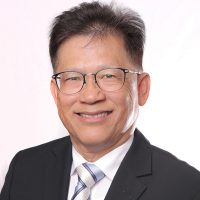
Dr Chay is the Head of Paediatrics at Liverpool Hospital and has vast clinical experience in both public and private health systems. From 2010 to 2018, he served as the Clinical Stream Director of Paediatrics and Neonatology at South Western Sydney Local Health District, where he developed a collaborative structure that enabled clinicians across the district to provide input into service planning, policy development, clinical redesign, implementation of new models of care, as well as maintaining quality, safety and efficiency in healthcare.
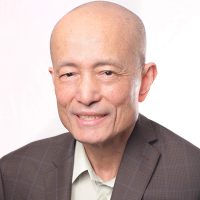
Primary and integrated health care, delivered by a multiprofessional team is essential to optimal management of chronic diseases and promotion good quality of life. Continuity of information and management protocols are important mechanisms, along with relational continuity, are important facilitators and contributors to best practice and of beneficial patient outcomes. This confluence of clinical practice and informatics is a basic and essential skill in the health profession.
MENTAL HEALTH
 This theme is focussed on understanding child, family, and institutional processes that lead to mental health concerns. This includes working closely with the district’s ICAMHS unit, children, and young people, to co-design research projects aimed at improving mental health outcomes. An example of these initiatives is our work setting up children and young people’s engagement groups to co-create research proposals around priority areas the young people identified themselves. We have also worked with services such as the out of home care team or the adolescent in-patient unit, to test new interventions and models of care, ensuring our district is responsive to the community’s needs.
This theme is focussed on understanding child, family, and institutional processes that lead to mental health concerns. This includes working closely with the district’s ICAMHS unit, children, and young people, to co-design research projects aimed at improving mental health outcomes. An example of these initiatives is our work setting up children and young people’s engagement groups to co-create research proposals around priority areas the young people identified themselves. We have also worked with services such as the out of home care team or the adolescent in-patient unit, to test new interventions and models of care, ensuring our district is responsive to the community’s needs.
It is important to note that “Mental Health” was not one of BestSTART’s key themes initially; however, after consultations with children and young people in South West Sydney, it became clear that this was a priority area for them. In response BestSTART changed its research strategy to incorporate “Mental Health” as one of its key research themes. Indeed, the more we looked at it the more we realised that young people were correct in their assessment, for example rates of self-harm in young people in SWS have doubled in the last decade. Other priority areas highlighted included dealing with stress, discrimination, and self-esteem, which often manifested as anger, anxiety, or depression.
Building on the critical relationships that have been established between researchers, local services, and the SWS community, we are working together to activate change-making from the grassroots and co-develop mental health project proposals and interventions.
MEET THE TEAM

Valsamma Eapen
Co-Director BestSTART-SWS Professor & Chair of Infant, Child and Adolescent Psychiatry, UNSW
In the area of Child and Adolescent Psychiatry, special areas of focus include epidemiology, genetic underpinnings, neurocognitive processes and clinical presentation of neurodevelopmental disorders such as Tourette Syndrome, Autism, Obsessive Compulsive Disorder, and Attention Deficit Hyperactivity Disorder. Other areas of interest include anxiety in young children and metabolic syndrome in adolescents with mental illness.
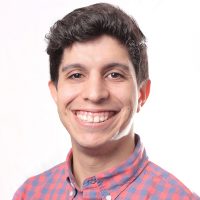
Tony Mendoza Diaz completed his PhD in Clinical Child Psychology at the University of Sydney’s Brain and Mind Centre with Professor Mark Dadds. He now works with BestSTART South West and the Early Life Determinants of Health (ELDoH) groups to enhance child health research across NSW.
Tony has worked with a number of service providers (Karitane, Royal Far West, Sydney Child Behaviour Research Clinic, Liverpool Hospital, Woden Community Services) as well as across several research organisations (ANU, UNSW, USYD, the Ingham Institute, SPHERE). Tony brings his expertise in mental health research, research design, and data science along with a passion for youth health to the teams and projects he works with.
EQUITY
 This research theme’s key focus is working towards ensuring that the health systems works for everyone. A critical element is to make sure that everyone, even those struggling to make ends meet, can have a fair go at a healthy life. In NSW, a Premier’s Priority is to Break the Cycle of Disadvantage, and State and Federal Governments aim to provide income entitlements and support services to protect families from poverty to do this
This research theme’s key focus is working towards ensuring that the health systems works for everyone. A critical element is to make sure that everyone, even those struggling to make ends meet, can have a fair go at a healthy life. In NSW, a Premier’s Priority is to Break the Cycle of Disadvantage, and State and Federal Governments aim to provide income entitlements and support services to protect families from poverty to do this
Poverty has a severe adverse impact on the health and wellbeing of children and their families. In NSW, one in seven children, 200 000 children aged 0-14, live in poverty, higher than any other State in Australia. Not only do poor children go on to carry a greater risk of early death and chronic illness, but they are also more likely to fail in school, be unemployed, and be excluded from society. These adverse outcomes cost Australia $14bn per year through loss of productivity and increased health, welfare, and justice expenditure. South West Sydney is characterised by cultural diversity and significant areas of high socioeconomic risk. South West Sydney encompasses 6 out of the 20 most disadvantaged suburbs in Sydney contributing to social determinants of health within the District’s boundaries.
Building on clinical links and previous interdisciplinary research to work with vulnerable and at risk children such as those in OOHC and children from Aboriginal, refugee and CALD communities. These children and families have specific vulnerabilities but also resilience in the face of social and economic disadvantage. We will address inequities in child health and health care through rigorous implementation science with a focus on early childhood cognitive, socioemotional and physical development, health systems outcomes and obesity in these vulnerable children.
MEET THE TEAM
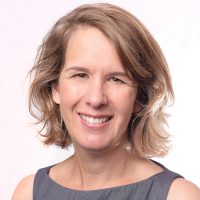
Sue Woolfenden is a senior staff specialist in the Department of Community Child Health and the clinical lead in Integrated Care at Sydney Children’s Hospital Network. She is a Senior Research Fellow with the University of New South Wales School of Women’s and Children’s Health. She has led research that investigates the impact of inequitable health service provision on child health outcomes in the early years of childhood. in Australia and globally. Her research has a strong translational components. Sue is the co-chair a Royal Australasian College of Physicians working group that developed the first Child Health Equity Policy Statement in Australia. From 2019 to 2022 she will hold and NHMRC Career Development Fellowship in ” Overcoming health inequity by using integrated models of care for children with neurodevelopmental problems” in the Population Child Health Group at UNSW School of Women and Children’s Health.
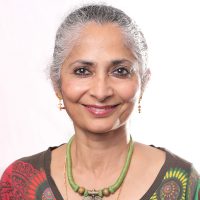
Dr Raman is a Consultant Paediatrician whose research and teaching interests include health of migrants and refugees, international maternal and child health, poverty, child rights and child abuse and neglect. She is currently enrolled in a PhD in the School of Public Health and Community Medicine, UNSW. In her role as Community Paediatrician in charge of Child Protection services in Sydney South West Area Health Service, she has provided clinical leadership in this field, professional development and training in clinical aspects of child abuse and neglect and developed area-wide relevant policies on children’s rights and child protection.
Dr Raman has maintained a strong interest in international health, provided consultancy services in international health (maternal, neonatal and child health), worked on population based research projects in India and been involved in teaching public health. She has been involved with policy development at national (with the Royal Australasian College of Physicians), State (NSW Health), and international (though International Society for Social Pediatrics, International Society for Prevention of Child Abuse & Neglect) levels. She has set up a number of clinical services for vulnerable populations of children and youth in the area; and is involved in numerous population-based research projects in child health.
